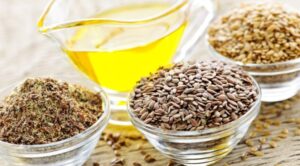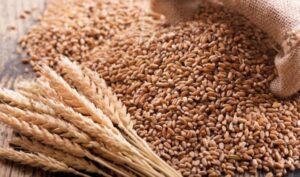
In 2023-2024 marketing year, Ukraine processed a record 17.4 mln tons of major types of oilseeds, including 14.8 mln tons of sunflower, 1.6 mln tons of soybeans and one million tons of rapeseed, according to the industry association Ukroliyaprom.
“The production and export volumes of sunflower oil not only reached but exceeded some pre-war periods. (…) The increase in sunflower oil production was facilitated by significant processing of sunflower seeds at domestic facilities due to a significant reduction in exports, which decreased by 83.4% or 1.5 million tons,” analysts said.
According to their information, in 2023/2024 MY the total volume of sunflower seeds crushed into oil was 14.8 mln tonnes, up 1.3 mln tonnes compared to the previous year.
At the same time, the production and export volumes of sunflower oil amounted to 6.6 mln tonnes and 6.2 mln tonnes, respectively, which was the second result in the industry’s history. Compared to the pre-war 2020/2021 MY, the production and export volumes of sunflower oil in 2023/2024 MY increased by 13.7% and 17%, respectively.
Ukroliyaprom noted that for the first time since independence, Ukraine processed 1.0 mln tons of rapeseed, which accounted for 22.3% of the total harvest in 2023. The production of rapeseed oil reached a record high of 430 thsd tonnes for Ukraine.
This is 0.8 mln tonnes more than in the previous periods, despite the fact that rapeseed is considered to be the main export-oriented agricultural raw material, the industry association said, adding that the export of rapeseed oil in 2023/24 MY reached the record level of over 424 thsd tonnes.
Ukroliyaprom pointed to the continued growth of soybean and meal oil production and exports by 22% and 29%, respectively.

Gold continues to rise in price and break records on the back of a weaker US dollar and on expectations of a significant interest rate cut by the Federal Reserve this week. Based on futures quotes on the rate level, the probability of its reduction by 50 basis points (bps) by the Federal Reserve is estimated by the market at 67% compared to 25% a month ago, according to CME FedWatch.
In addition, demand for gold as a safe-haven asset has intensified following the second assassination attempt on U.S. Republican presidential candidate Donald Trump last weekend, Trading Economics noted.
“A fragmented world laden with geopolitical risks and debt will continue to support the price” of gold, notes Ole Hansen, head of commodities strategy at Saxo Bank.
Analysts Goldman Sachs confirmed their forecast, according to which the precious metal may rise to $ 2700 per ounce in early 2025 due to lower interest rates in the U.S. and increased demand for gold from the Central Bank of emerging market countries. However, they noted that if the Fed raises the rate by only 25 bp, prices for precious metal may show a short-term pullback, Bloomberg reports.
Experts of the Australian bank ANZ also expect prices to rise to $2700 per ounce in the near future.
Quotes of October gold futures on the Comex exchange are now $2588.7 per ounce, which is $3.5 (0.1%) above the level at the close of the previous session. Since the beginning of this year, the precious metal has risen in price by more than a quarter.

IMC Agro Holding has completed harvesting winter wheat from 20.2 thousand hectares and harvested 139.8 thousand tons with an average yield of 6.9 t/ha, which is the second best result in the history of the company and 60% higher than the average wheat yield in Ukraine, the company’s press service reported on its Facebook page.
According to the report, the agricultural holding is satisfied with the results, as most of the harvested winter crops meet the quality parameters of milling wheat.
“Last fall’s weather conditions were favorable for timely sowing, good germination and tillering of winter wheat. This spring, we carried out fertilization and plant protection against weeds, diseases and pests in accordance with the technological map. All operations were completed on time according to the crop development stages and weather conditions,” said IMC Production Director Mykola Pylypenko.
He noted that the agroholding started wheat harvesting earlier than usual due to the lack of precipitation needed for optimal plant development in the Poltava cluster. This led to a slight decrease in yields and an early start of the harvest in Poltava region.
“In other regions of the company, Chernihiv and Sumy, weather conditions were more favorable, and we significantly exceeded our targets for yield and gross production of winter wheat,” summarized Pylypenko.
“IMC is an integrated group of companies operating in Sumy, Poltava and Chernihiv regions (north and center of Ukraine) in the crop production, elevators and warehouses segments. The land bank is about 120 thousand hectares, storage capacity is 554 thousand tons, with a 2023 harvest of 1.002 million tons.
In 2023, IMC posted a net loss of $21.03 million compared to $1.12 million a year earlier, and its EBITDA decreased 11.3 times to $3.22 million. The holding’s revenue increased by 22.3% to $139.45 million, while the share of exports decreased to 68% from 73% a year earlier.

TAS Agro has completed harvesting winter crops and threshed about 24 thousand hectares of wheat and rapeseed, with a winter wheat yield of 6.3 t/ha, a record high for the agricultural holding’s history, the company’s press service reports on Facebook.
“The harvest of early grain crops was completed quite successfully, despite the difficulties and additional risk factors that accompanied farmers this year. Early spring, abnormal heat in June and July, and power cuts had virtually no impact on our businesses due to the introduction of advanced technologies, upgraded equipment and employee responsibility. We managed to implement an effective strategy for the entire range of agrotechnical operations, harvested the grain in the best possible time and also produced a record winter wheat crop. The Northern cluster became the leader in the company in terms of yield of this crop with 7 tons per hectare,” said Oleg Zapletnyuk, CEO of TAS Agro.
The agroholding specified that in 2024, the company will use its own equipment, which was updated during the year, to the maximum extent possible. Only combine harvesters were rented due to economic feasibility. Along with the harvesting campaign, we worked on organizing logistics and marketing of the harvested crop. Currently, the grain is accepted at pre-prepared elevator facilities.
TAS Group was founded in 1998. Its business interests include the financial sector (banking and insurance) and pharmacy, as well as industry, real estate, and venture capital projects.
Before the war, TAS Agro Group cultivated 83 thousand hectares in Vinnytsia, Kyiv, Kirovohrad, Chernihiv, Mykolaiv, Sumy, Kherson, and Dnipro regions, where it grows soybeans, sunflower, rapeseed, wheat, barley, and corn. In addition, the agricultural holding is engaged in dairy farming (up to 5.5 thousand heads of cattle) and owns six elevators with a simultaneous storage capacity of 250 thousand tons.
The founder of TAS is Sergey Tigipko.

Ukraine’s exports in April this year increased by 11% compared to March and reached 13.1 million tons, the best result since the full-scale Russian invasion, First Deputy Prime Minister and Minister of Economy Yulia Svyrydenko said on Facebook on Wednesday.
“This is an absolute record for the entire period of the full-scale war. For example, in March, exports amounted to 11.8 million tons, in January – 12 million tons. Importantly, this figure is higher than the level of pre-war February 2022. Back then, we exported 12.8 million tons,” the Minister of Economy reminded.
According to her, in monetary terms, exports in April amounted to $3.3 billion compared to $3.2 billion in March.
Svyrydenko noted that the growth in exports was primarily due to the operation of an alternative sea corridor, which made it possible to partially compensate for losses in the economy due to the blockade of the Polish-Ukrainian border, as well as the introduction of a mechanism for insuring ships against military risks, which initially applied only to agricultural products, but was soon expanded to all non-military cargo.
“Of course, the growth and expansion of the capacity of the Solidarity Roads, primarily with Moldova and Romania, has also added to the growth. And the improvement of the conditions for the transportation of goods by rail to the Danube ports,” the Deputy Prime Minister said.

In 2024, the production of oilseeds in Ukraine will increase by 19% compared to 2023 to 2.3 mln ha, which will be a record for the industry, APK-Inform news agency reported based on the results of the survey among farmers.
According to the survey, conducted in February-March 2024, 82% of the respondents, who grow soybeans, plan to keep the area under soybeans unchanged, and 16% intend to increase it. The increase will be due to the reduction of the area under winter crops, as well as sunflower or other spring crops.
The soybean area in 2024 may increase to 2.3 mln ha (+19% by 2023), which will be a new record for the industry. Previously, the maximum for this crop was 2.2 mln hectares in 2015, analysts predict.
They also expect the production of soybeans in Ukraine to reach a record level, which, according to preliminary estimates, could reach 6 mln tons, which is 17% higher than last year.
At the same time, according to experts, the area under sunflower is not likely to change significantly: 87% of the respondents who grow the crop plan to keep the area under it unchanged. Those who plan to reduce or increase the area under sunflower mostly reported that it will be at the expense of rapeseed.
“Our estimate of the sunflower acreage in 2024 is still 5.8 mln ha, which is almost at the level of 2023. Under favorable weather conditions, the oilseed harvest could reach 13.9 mln tonnes (+1% compared to 2023), which is still lower than the pre-war figure,” the analysts emphasized.
The area under rapeseed in 2024 is likely to decrease due to the dry autumn, which led some farmers to abandon the winter oilseed planting.
In the survey, 51% of respondents reported that winter rapeseed crops are in good or excellent condition, 43% – in satisfactory condition, and 5% – in poor condition.
The area under spring rapeseed may also increase in 2024 to the record level due to the price attractiveness of this oilseed, but the total area under winter and spring rapeseed, according to APK-Inform preliminary estimates, will decrease by 6%. This figure will still remain quite high compared to previous years, amounting to about 1.4 mln ha. The harvest of this oilseed may decline by 9% in 2024, to 4.2 mln tonnes, APK-Inform summarized.